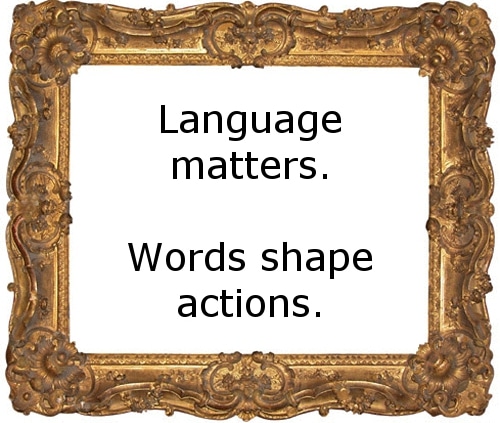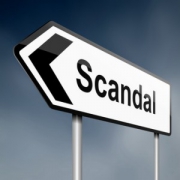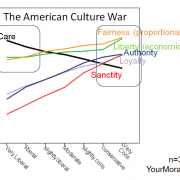Framing the Language of Business
 Framing is not just how you present a painting. Framing helps to communicate the type of art, it complements subject matter, and it influences how the viewer perceives the image. Framing also matters when it comes to business, and the language we use can deeply affect both the rules we follow and those we are willing to break.
Framing is not just how you present a painting. Framing helps to communicate the type of art, it complements subject matter, and it influences how the viewer perceives the image. Framing also matters when it comes to business, and the language we use can deeply affect both the rules we follow and those we are willing to break.
While business has its own lexicon, a new piece in Ethisphere by Scott Killingsworth, Senior Counsel with Bryan Cave LLP in Atlanta, illustrates that when we couch the business of business in terms of war and gamification, we prime the pump for pernicious results. He writes:
Framing business as a game belittles the legitimacy of the rules, the gravity of the stakes, and the effect of violations on the lives of others. By minimizing these factors, the game metaphor takes the myopic “strictly business” framing a step further, into a domain of bendable rules, acceptable transgressions, and limited accountability. If it’s just a game, it is easier to forgive our team—or ourselves—for cheating a little, as long as the referee doesn’t notice. But those little cheats have a way of snowballing. If they’re successful and profitable, the misconduct is rewarded, reinforced, and usually repeated, and we may soon find ourselves careening metaphorically down a slippery slope.
The war metaphor conditions our thinking in a way distinct from the game frame, but complementary to it. War is a matter of survival: the stakes are enormous, the mission urgent, and all’s fair. Exigent pressures grant us wide moral license, releasing us from adherence to everyday rules and justifying extreme tactics in pursuit of a higher goal; we must, after all, kill or be killed. If business is war, survival is at stake, and competitors, customers, suppliers, rivals or authorities are our enemies, then not only may we do whatever it takes to win, it’s our duty to do so.
Killingsworth connects these terms to the recent foreign currency market manipulation case that resulted in felony convictions and billions in fines for five multinational banks. By “gaming the system,” opportunistic bankers were able to rig rates and reap untold profits. Would they have done so if not subtly encouraged by an interpretation of what is and is not acceptable conduct? How we frame our activities provides a context for illegal and/or unethical behavior. The ripple effects damage a company’s public reputation, erode market confidence and reinforce beliefs about an unequal system where there is little room for those that choose to play by the rules.
We know tone starts at the top and leadership is possibly the most important lever for designing ethical systems. Therefore, all who are in supervisory roles must be aware of how they frame roles and actions. As per Killingsworth:
What leaders say, what they do, what they reward and ignore, and what interests they consider in decision-making all convey messages about how employees should frame their roles.
When companies devote more attention to the importance of framing, they are better able to obviate potential damage and controversy. This leads to a stronger ethical culture and more long term organizational viability- truly a picture worth admiring.
Further reading:
- Learn more about framing in our summary of Sidetracked by ES collaborator Ann Tenbrunsel.
- Read our book summary [specifically chapter 3] of Managing Business Ethics: Straight Talk About How To Do It Right by ES collaborator Linda Treviño on how psychology, including framing, impacts the ethical decision-making process
- Study by ES collaborator Nick Epley et. al. on framing and income: Bonus or Rebate?: The impact of income framing on spending and saving.









